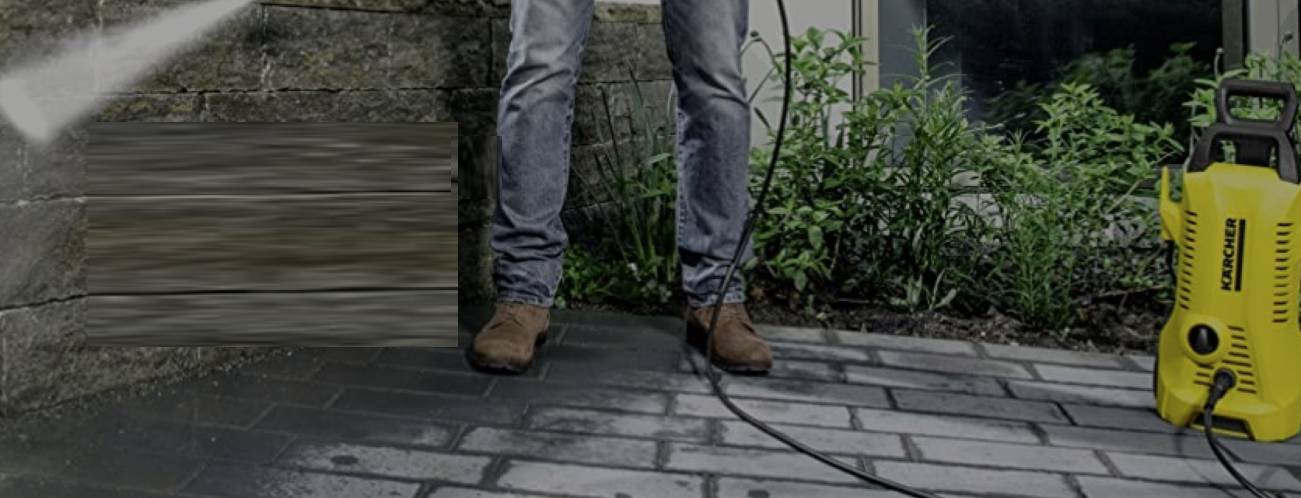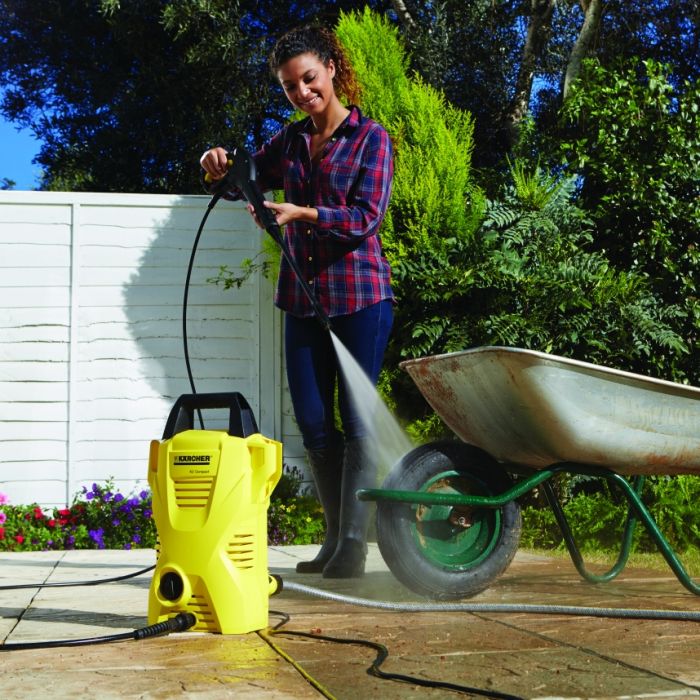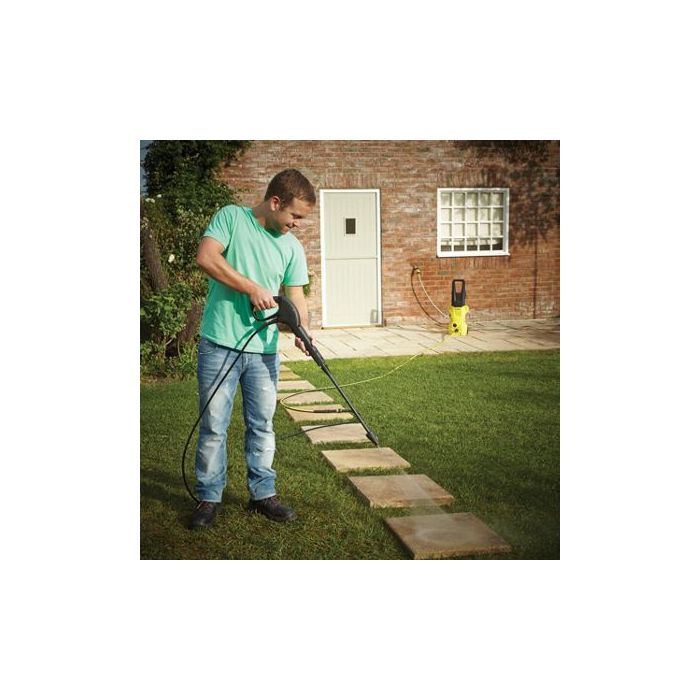Purchasing a pressure washer is a smart investment for the whole year, but this versatile tool comes in handy, especially during the warmer months of the year, as you prepare your garden/patio/driveway for summer.
Picture this: the sun shining, your loved ones gathered around a delicious barbecue, and a sparkling clean outdoor space to host the party. All you need to get ready for calling your friends and family over for some fun-filled afternoons is a powerful pressure washer that’ll save you not only time and energy on your next cleaning job, but if you opt for a refurbished model, it can also save you money!

How does a Pressure Washer Work?
The principle of high-pressure cleaning is to force water at high speed through a fine nozzle. The strong jet of water produced is to dislodge dirt, most models of pressure washers are specifically designed to add detergent into the water - therefore increasing the cleaning power of the jet.
When do you Need a Pressure Washer?
A pressure washer can help you quickly clean large areas of all kinds of hard outdoor surfaces covered with stubborn dirt, grease, plant residue, or other materials. They're great for when the old "brush and soapy water" routine would take forever.
Using them on small areas isn't very efficient unless you're dealing with a particularly tough stain. If setting up the machine takes more time than the actual cleaning, consider cleaning the area by hand.

What can I use a Pressure Washer on?
Pressure washers are incredibly versatile tools that can handle a wide array of cleaning tasks across different surfaces:
- Driveways and pavements: Pressure washers are excellent for removing dirt, grime, and even stains like oil or grease from concrete surfaces. Use a medium to high-pressure setting depending on the toughness of the stains.
- Decking and Patios: Wood and composite decks can be cleaned with a pressure washer to remove dirt, mildew, and old paint or stain. Use a lower pressure setting (around 1500-2500 PSI) and a wide-angle nozzle to avoid damaging the surface.
- Fences: Pressure washing can quickly clean fences made of wood, vinyl, or metal. Adjust the pressure based on the material (lower for wood to avoid splintering). It's effective for removing dirt, mildew, and even old paint.
- Exterior Walls of Buildings: Pressure washers can remove dirt, mould, and mildew from the exterior walls of buildings made of materials like brick, stucco, or siding. Use a lower pressure setting and start from a distance to avoid damage.
- Vehicles (Cars, Trucks, Boats): Pressure washers can be used to clean vehicles, removing mud, dirt, and grime from exteriors. Use a lower pressure setting and a wide-angle nozzle to prevent damage to paint or delicate parts.
- Outdoor Furniture: Metal, plastic, or even wood outdoor furniture can be cleaned with a pressure washer to remove dirt, bird droppings, and other debris. Adjust the pressure based on the material.

What can I not use a pressure washer on?
A normal garden hose delivers water pressure at a rate of about 50 pounds per square inch, while a pressure washer operates at 1,500 to 4,000 pounds per square inch—they’re very powerful machines. Used on the correct type of surfaces, they can remove stubborn stains and dirt in a heartbeat. But given their tremendous power, there are many items you should absolutely never pressure wash:
- Windows: Glass is delicate, and using a pressure washer can easily cause windows to shatter inward. Pressure washing them could lead to significant problems beyond just dirt and grime. You'll likely end up needing to replace the window and deal with a messy cleanup of water and broken glass.
- Gutters: Cleaning clogged gutters is tough, but using a pressure washer isn't the solution. The force can pull gutters off your home or damage them. Instead, clear debris by hand and rinse gently with a garden hose.
- Lead Paint: Lead paint is hazardous and should be removed by professionals. Pressure washing can release paint particles into the air uncontrollably, posing health risks.
- Mortar or Brick: Older mortar or brick can be damaged by a pressure washer, dislodging loose bits and causing premature wear. Brick absorbs water and expands and contracts, weakening and potentially causing cracks.
- Stained Wood: Avoid pressure washing stained wood unless you intend to remove the stain. The force can strip away the stain and damage the wood.
- Pools: Cleaning pools with chemicals or robotic cleaners is safer than using a pressure washer. High pressure can damage cement pools and tear vinyl liners.
- Trees and Shrubs: Pressure washing trees can strip bark, weakening them and making them susceptible to pests and disease. It can also damage roots and erode topsoil around plants.
- Other Living Things: Pressure washers can cause serious harm to plants, humans, and pets, leading to cuts or abrasions.
- Solar Panels: Pressure washing solar panels risks detachment from frames or damage to their outer layers, potentially voiding warranties.
At Direct Vacuums, we’ve used our years of experience in the refurbishment industry to provide a wide range of refurbished household appliances available for only a fraction of the RRP, and that includes an extensive range of refurbished pressure washers from top brands such as Karcher and Vytronix. However, if refurbished is not the right option for you, we also have an entire selection of brand new pressure washers that come with the manufacturer’s warranty.
If you’re not 100% sure which model is the best one for you, why not give us a call on 01582 66 46 00 and our friendly team will help you decide! We’d love to hear your best tips for summer cleaning or what’s your favourite use for a pressure washer, so don’t hesitate to share them with us in the comments below or on our Facebook and Twitter pages.





